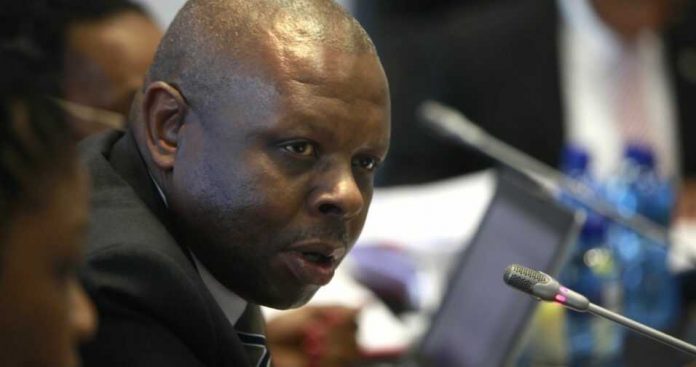The MK Party and its parliamentary leader John Hlophe have filed an urgent court application to interdict the Judicial Service Commission’s (JSC) sitting this month.
This urgent court application is expected to be heard at the Johannesburg High Court on Friday.
The party asked the JSC to postpone the meeting until after Hlophe’s appeal of an interim order that prevents him from serving on the JSC was resolved, but the JSC turned down the party’s request on Tuesday.
The JSC determined at its meeting on Monday that it will proceed with the interviews according to schedule despite the request to appeal the interim court order.
Impeached for gross misconduct
As a result, the 54 shortlisted applicants will be interviewed on time for the available positions at the Labour Court, Land Court, Supreme Court of Appeal, and Labour Appeal Court.
The DA, Freedom Under Law, and Crime Watch filed applications, and the Western Cape High Court granted the interdict.
The organisations have been challenging the parliament’s decision to designate Hlophe as one of the members of the JSC, citing that he was impeached for gross misconduct and could not be allowed to take part in any of the JSC’s activities.
In the court documents, the MK Party requests that the court declare the JSC’s refusal to postpone its sitting illegal, unreasonable, and unconstitutional.
Suspend the interviews
As an alternative, the interview process for potential judicial appointees should be suspended while the postponement case documented in Part BB is resolved.
“The first respondent [JSC], second [speaker of the National Assembly], and/or third [DA] are called upon to show cause why the abovementioned decision should not be reviewed and set aside,” reads the court document in part.
Mzwanele Manyi, the chief whip of the MK Party, stated in an affidavit that the court should grant a postponement because the JSC has demonstrated a lack of willingness.
“The same considerations would apply if the interdictory relief were granted in the form of appropriate relief in terms of Section 38 of the constitution, in the further alternative,” Manyi said.
“This forms part of the very wide discretion of the court to ensure that the rights enshrined in the constitution are protected and enforced.”



